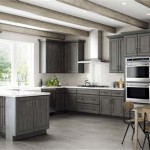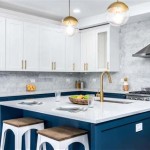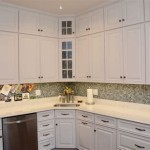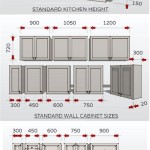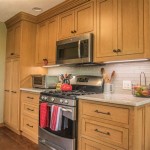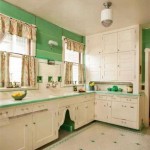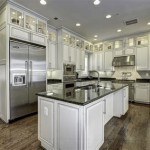Arranging Kitchen Cabinets: Essential Considerations for a Functional and Visually Appealing Space
The kitchen is the heart of the home, and its functionality and aesthetics play a crucial role in making it a place where people gather, cook, and create memories. One of the key aspects of a well-designed kitchen is the arrangement of cabinets, which not only provides storage space but also influences the flow of movement and the overall ambiance of the room.
1. Space Planning
Before embarking on the task of arranging cabinets, it's essential to carefully consider the available space in the kitchen. Measure the room's dimensions and determine the locations of windows, doors, and appliances. This will help you allocate the appropriate amount of space for cabinets and ensure that they fit harmoniously within the overall layout.
2. Workflow Efficiency
The arrangement of cabinets should prioritize workflow efficiency. Place frequently used items within easy reach, such as cookware, utensils, and spices. Designate specific areas for different activities, such as food preparation, cooking, and cleanup. By creating a logical flow of movement, you can minimize unnecessary steps and make cooking a more enjoyable experience.
3. Storage Capacity and Accessibility
The number and size of cabinets should carefully consider the storage needs of the household. Determine what items need to be stored and how much space they require. Utilize a variety of cabinet types, including base cabinets, wall cabinets, and drawers, to maximize storage capacity. Ensure that cabinets are easily accessible, especially those containing frequently used items.
4. Work Zone Design
The work zone, typically consisting of the sink, stove, and refrigerator, should form the central hub of the kitchen. Arrange cabinets around these appliances to create a comfortable and efficient work area. Consider the placement of drawers and shelves to keep essential supplies and tools within reach.
5. Vertical Space Utilization
Maximize vertical space by utilizing wall cabinets and tall pantry cabinets. Wall cabinets provide additional storage without taking up valuable floor space. Tall pantry cabinets offer a convenient way to store bulky items, such as pots, pans, and cleaning supplies. By optimizing vertical space, you can create a more spacious and organized kitchen.
6. Aesthetic Considerations
In addition to functionality, the arrangement of cabinets should also complement the overall design and style of the kitchen. Choose cabinet finishes, door styles, and hardware that harmonize with the décor and create a visually appealing space. Consider the impact of cabinet placement on the flow of light and the overall aesthetic of the room.
7. Professional Consultation
If you're unsure about the best arrangement for your kitchen cabinets, consult a professional kitchen designer. They can help you create a customized layout that meets your specific needs and preferences. A well-designed kitchen will not only be highly functional but also a visually stunning space that you'll love to use for years to come.

How To Organize Your Kitchen Cabinets And Pantry Feed Me Phoebe

How To Organize Kitchen Cabinets In 9 Simple Steps Trusted Since 1922

How To Organize Your Kitchen Cabinets Step By Project The Container

How To Organize Your Kitchen Cabinets In 3 Simple Steps Practical Perfection

60 Clever Cabinet Organization Tips To Double Your Storage 2024

How To Organize Your Kitchen Cabinets Step By Project The Container

How To Organize Your Kitchen Cabinets One At A Time

How To Organize Kitchen Drawers Hallstrom Home

Organize Your Kitchen Cabinets Using These Easy Tips Hsa

How To Organize Kitchen Cabinets Upcoming Decor Cabinet Organization Clean
Related Posts


